法然と浄土宗の開祖の謎 『選択本願念仏集』 救済の道の真実とは?
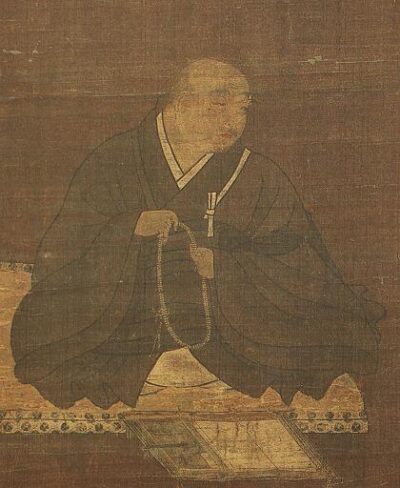
The Mystery of Honen and the Founder of Jodo Shu: “Senchaku Hongan Nembutsu Shu” – Unveiling the Truth of the Path to Salvation
Introduction
Honen is renowned as the eminent monk who founded Jodo Shu, yet his seminal work, “Senchaku Hongan Nembutsu Shu,” holds many enigmas regarding the essence of salvation.
What exactly is the path to salvation encapsulated in this text, and how should Honen’s true intentions be interpreted?
Delving into history, we explore its profound philosophical and religious messages.
Unveiling the Mystery of Honen and the Founder of Jodo Shu
Honen holds a significant place in Japanese Buddhist history as the founder of Jodo Shu.
His life is characterized by a deep devotion to Buddhist teachings and his efforts to spread nenbutsu practice among many people.
After becoming a monk in 1175, he immersed himself in studying numerous scriptures, cultivating his own understanding of Buddhism.
In particular, “Senchaku Hongan Nembutsu Shu” is highly regarded as a comprehensive work that embodies his teachings and played a pivotal role in popularizing exclusive nenbutsu practice.
Honen’s teachings brought a new perspective to the Buddhist community of his time.
He emphasized devotion to Amida Buddha and the recitation of nenbutsu over rigorous ascetic practices and precepts.
This simple and accessible practice resonated widely among the common people, leading to the rapid spread of Jodo Shu.
Thus, Honen established himself as the founder of Jodo Shu and exerted a profound influence on future generations.
Honen’s philosophy and practices marked a significant milestone in Japanese Buddhist history.
His teachings exemplified an egalitarian and inclusive approach to Buddhism, creating opportunities for many people to embrace the faith.
Therefore, Honen’s role as the founder of Jodo Shu continues to be studied and respected by scholars today.
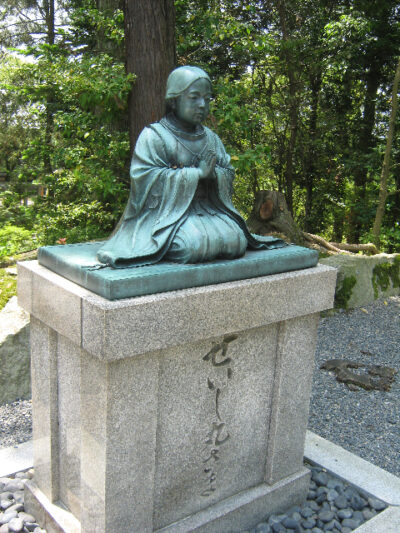
Seishi Maru-sama (Chion-in Temple)
法然の生涯と仏教への道
法然は、平安時代末期に活躍した僧であり、浄土宗を開いたことで知られています。
彼の教えは、『選択本願念仏集』(選択集)にも詳述されており、専修念仏を説いたことで多くの人々に影響を与えました。
法然の思想は、仏教の中でも特に人々の救済を重視する点で、当時の宗教観に新たな光を投げかけたのです。
法然は、1141年に京都で生まれました。
若くして出家し、比叡山で学んだ後、彼は自身の信仰と実践を深めていく過程で、浄土宗の教えを確立しました。
彼は、阿弥陀仏に対する深い帰依と、念仏を唱えることによる救済を説き、多くの庶民に支持されるようになります。
浄土宗の開祖としての法然の役割は、単に新しい宗派を立ち上げたという以上のものでした。
彼は、当時の仏教界における複雑な修行や儀式を簡素化し、すべての人が平等に救われる道を開いたのです。
法然の教えは、後世においてもその弟子である親鸞によってさらに広められ、日本の仏教思想に大きな影響を与え続けています。
法然の生涯は、仏教への道を求める多くの人々にとって、信仰の模範であり続けています。
彼の教えが今日に至るまで色褪せることなく受け継がれているのは、その普遍的な救済のメッセージが、時代を越えて多くの心に響くからでしょう。
浄土宗開祖としての法然の役割
法然は、日本仏教史において重要な位置を占める人物です。
彼は浄土宗の開祖として知られ、その教えは数多くの信者に受け継がれています。
『選択本願念仏集』を著し、専修念仏の普及に尽力した法然の生涯は、仏教哲学において深い洞察を与えています。
法然は、1141年に誕生し、若くして仏教の道に進みました。
彼は比叡山で学びながら、仏教の中でも特に念仏の実践に力を注ぎました。
その結果、浄土宗という新たな宗派を創始し、「南無阿弥陀仏」と唱えることによって救われるという教えを広めました。
浄土宗開祖としての法然の役割は、単に宗派を創設しただけではありません。
彼の教えは、当時の仏教界に新たな風を吹き込み、多くの人々が仏教を身近に感じることができるようになりました。
専修念仏の実践を通じて、救済を求める一般庶民にも広がりを見せたのです。
法然の教えは、後世にも大きな影響を与え、その思想は多くの宗教家や学者によって研究され続けています。
彼の哲学と宗教的実践は、日本仏教の発展において不可欠なものであり、今日に至るまでその価値が認められているのです。
The Life of Hōnen and the Path to Buddhism
Hōnen is renowned as a monk who flourished in the late Heian period and is known for founding the Pure Land school of Buddhism.
His teachings are expounded in the “Senchaku Hongan Nembutsu Shū” (Selections of the Nembutsu of the Original Vow), which greatly influenced many by advocating exclusive devotion to the Nembutsu.
Hōnen’s philosophy emphasized salvation for all, marking a new perspective in contemporary religious views.
Born in Kyoto in 1141, Hōnen entered monastic life at a young age and deepened his understanding of Buddhism after studying at Mount Hiei, where he eventually established the teachings of the Pure Land school.
He focused on profound reliance on Amida Buddha and the recitation of the Nembutsu, gaining widespread support among the common people.
Hōnen’s role as the founder of the Pure Land school transcended mere establishment of a new sect; he simplified complex Buddhist practices of the time, opening a path of equal salvation for everyone.
His teachings were further propagated by his disciple Shinran, continuing to exert a profound influence on Japanese Buddhist thought.
Hōnen’s life continues to serve as a model of faith for many seeking the path to Buddhism, enduringly resonating with its universal message of salvation.
The Role of Hōnen as Founder of the Pure Land School
Hōnen holds a significant position in Japanese Buddhist history as the founder of the Pure Land school, with his teachings passed down through numerous followers.
Through his work “Senchaku Hongan Nembutsu Shū” and advocacy for exclusive devotion to the Nembutsu, Hōnen’s life provides deep insights into Buddhist philosophy.
Born in 1141, Hōnen dedicated himself to Buddhism from a young age, studying diligently at Mount Hiei.
His particular emphasis on the practice of Nembutsu, centered around the chanting of “Namu Amida Butsu,” led to the establishment of the Pure Land school.
Hōnen’s role as founder of the Pure Land school extends beyond the mere creation of a sect; his teachings brought a fresh perspective to the Buddhist community, making Buddhism more accessible to the general populace.
Through the widespread practice of exclusive devotion to the Nembutsu, Hōnen’s teachings reached the common people, seeking salvation.
Hōnen’s teachings have had a lasting impact, continuing to be studied by religious scholars and practitioners.
His philosophical insights and religious practices are essential to the development of Japanese Buddhism, recognized for their enduring value to this day.
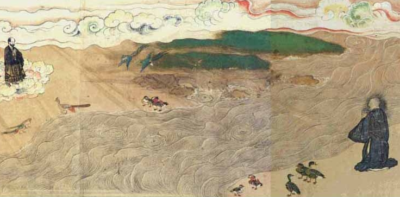
Illustrated Biography of Hōnen Shōnin
『選択本願念仏集』とは何か?
『選択本願念仏集』は、浄土宗の開祖である法然が著した仏教教義の集大成です。
この文献は、専修念仏の教えを体系的に説明し、後世の浄土宗の教義形成に大きな影響を与えました。
法然は、人々が念仏を唱えることによって、阿弥陀仏の救済を受けることができると説いています。
『選択本願念仏集』では、この念仏の実践がいかにして最も重要な修行であるかを、経典の引用や解釈を通じて展開しています。
法然は、自身の解釈を通じて、念仏の実践を「選択」することの大切さを強調しました。
彼は多くの経典を引用しながら、なぜ念仏が他の修行法より優れているのかを論じ、その結果として念仏を選択することが如来の本願に沿った生き方であると結論付けています。
法然のこの教えは、後の浄土宗の中心教義となり、多くの信者に受け入れられることとなりました。
法然の教えによれば、念仏を唱えることは、阿弥陀仏の願いに応じる行いであり、すべての人が平等に救われるための手段です。
『選択本願念仏集』は、このような法然の思想を集約したものであり、浄土宗信者にとっては、信仰生活の指針となる重要な文献です。
法然の教えは、日本仏教史においても特筆すべきものであり、今日においてもその影響は色褪せることがありません。
『選択本願念仏集』の内容とその意義
『選択本願念仏集』は、浄土宗の開祖・法然によって著された宗教文献であり、専修念仏を中心とした教えが記されています。
この文献は、法然が浄土宗の教義を体系化し、後世に伝えるために書かれたものです。
その中で、法然は念仏の実践を通じて人々が救われるという浄土信仰の根本を説いており、仏教徒にとっての信仰のあり方を示しています。
法然は、他力本願の思想を強調し、自力での悟りではなく阿弥陀仏の本願力による救済を説きました。
『選択本願念仏集』では、そのような教えを具体的に解説し、念仏を唱えることの重要性を説いています。
法然のこの教えは、多くの人々に影響を与え、日本の仏教史において大きな意義を持つものとなりました。
また、『選択本願念仏集』は、法然自身の信仰と実践の集大成とも言える作品であり、彼の思想を深く理解するためには欠かせない文献です。
この文献を通じて、法然がどのように浄土宗の教えを広め、多くの信者に影響を与えたのかが明らかになります。
法然の教えにより、専修念仏は浄土宗信者の間で広く行われるようになりました。
『選択本願念仏集』は、その実践の指針を提供し、後の浄土宗の発展に大きく寄与したのです。この文献の研究は、浄土宗の理解を深めるだけでなく、日本の宗教文化を探求する上でも非常に価値があります。
法然による『選択本願念仏集』の解釈
法然は浄土宗の開祖として知られ、彼の著作『選択本願念仏集』は、専修念仏を実践する上での重要なテキストです。
この文献は、阿弥陀仏への帰依と称名念仏を中心に据え、救済への確信を深めるための指南書として法然によって編纂されました。
『選択本願念仏集』の内容は、念仏実践の要諦と阿弥陀仏の本願に基づく教えを明らかにしています。
法然は、すべての人々が平等に救われることができるという浄土宗の教義を、このテキストを通じて広めたのです。
彼の解釈によれば、阿弥陀仏の願いは、一切の生きとし生けるものが苦しみから解放され、究極の安らぎである浄土に生まれ変わることを可能にするものであるとされています。
法然の教えは、後世の浄土宗の教義や実践に大きな影響を与え、多くの信者にとって心の支えとなりました。
『選択本願念仏集』は、そのような法然の思想を体系的に学ぶための基礎文献として、今日でも多くの研究者や信者に読み継がれています。
このように、法然の『選択本願念仏集』に対する解釈は、浄土宗の教えを理解する上で欠かせない要素であり、彼の教義は現代においてもその価値を失っていません。
彼の教えを深く理解することで、私たちは人生の意味や宗教的信念について、より豊かな洞察を得ることができるのです。
The Significance of “Senchaku Hongan Nembutsu Shu”
“Senchaku Hongan Nembutsu Shu” represents the culmination of Buddhist teachings authored by Hōnen, the founder of the Jōdo Shū sect.
This text systematically explains the doctrine of exclusive reliance on the nembutsu and profoundly influenced the doctrinal development of Jōdo Shū in subsequent generations.
Hōnen taught that by reciting the nembutsu, one could receive salvation from Amida Buddha.
In “Senchaku Hongan Nembutsu Shu,” he elaborates on how this practice of reciting the nembutsu is the most important form of spiritual cultivation, supported by quotations and interpretations from Buddhist scriptures.
Hōnen emphasized the importance of “choosing” this practice of the nembutsu through his own interpretations.
By citing numerous scriptures, he argued why the nembutsu practice surpasses other forms of religious discipline, concluding that choosing to recite the nembutsu aligns with the primal vow of Amida Buddha.
Hōnen’s teachings became central to Jōdo Shū’s doctrine, accepted widely by believers.
According to Hōnen, reciting the nembutsu is an act that responds to Amida Buddha’s aspirations, offering a means of salvation equally accessible to all.
“Senchaku Hongan Nembutsu Shu” serves as a pivotal document consolidating Hōnen’s thoughts and remains a significant guideline for the faith life of Jōdo Shū adherents.
Hōnen’s teachings continue to hold profound influence in Japanese Buddhist history, their enduring impact transcending time.
Interpreting “Senchaku Hongan Nembutsu Shu”
Hōnen, renowned as the founder of Jōdo Shū, authored “Senchaku Hongan Nembutsu Shu” as a critical religious text emphasizing the practice of exclusive reliance on the nembutsu.
This work systematizes the doctrine of Jōdo Shū, intended by Hōnen to be passed down to future generations.
Within it, Hōnen expounds on the fundamental beliefs of the Jōdo faith, emphasizing that through the practice of reciting the nembutsu, individuals can attain salvation.
Hōnen stressed the concept of “other-power” (tariki), advocating reliance on Amida Buddha’s vow rather than self-attained enlightenment.
“Senchaku Hongan Nembutsu Shu” provides a detailed explanation of these teachings, highlighting the significance of reciting the nembutsu.
Hōnen’s teachings greatly influenced many people, holding significant importance in Japanese Buddhist history.
Moreover, “Senchaku Hongan Nembutsu Shu” represents a comprehensive work that encapsulates Hōnen’s beliefs and practices, indispensable for understanding his philosophy deeply.
Studying this document not only enhances comprehension of Jōdo Shū teachings but also enriches exploration into Japanese religious culture.
Therefore, interpretations of Hōnen’s “Senchaku Hongan Nembutsu Shu” remain essential for grasping Jōdo Shū doctrines, maintaining their relevance and value in contemporary times.
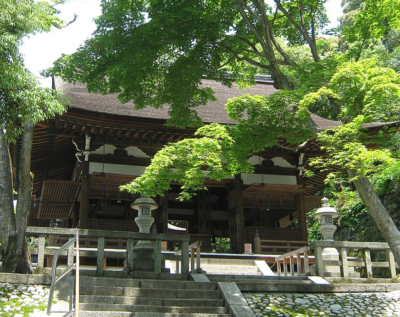
The Mausoleum of Hōnen Shōnin (Chion-in Temple)
専修念仏の教えとその実践
法然は12世紀に日本で活躍した僧侶であり、浄土宗の開祖として知られています。
彼が提唱した専修念仏の教えは、『選択本願念仏集』に詳述されており、その実践は今日に至るまで多くの信者によって受け継がれています。
専修念仏とは、阿弥陀仏の名を称える念仏を唱えることに専念する実践であり、これによって生死を超えた浄土への往生を願うものです。
法然による専修念仏の提唱は、当時の複雑な修行や難解な教義に対するシンプルな宗教的アプローチとして受け入れられました。
彼の教えは、すべての人が平等に救われるという思想を基盤としており、特に苦しむ人々にとって希望の光となりました。
法然の弟子たちは、この教えを広めるために日本各地を旅し、浄土宗の教団を形成していきました。
現代においても、専修念仏の影響は見過ごせません。
多くの浄土宗寺院では、法然の教えに基づいた念仏の実践が行われており、信者たちは日々の生活の中で念仏を称えることで心の平安を得ています。
また、法然の思想は日本の文化や芸術にも影響を与え、彼を題材にした文学作品や絵画も多数存在します。
法然の専修念仏の教えは、単なる宗教的な実践に留まらず、人々の心の支えとなり、生きる力となっているのです。
その普遍的なメッセージは、現代社会においても多くの人々に受け入れられ続けています。
法然による専修念仏の提唱
法然は浄土宗の開祖として広く知られており、その教えは多くの人々に影響を与えています。
彼が提唱した専修念仏は、『選択本願念仏集』に詳述されており、仏教徒の実践方法として今なお受け継がれています。
法然の専修念仏は、阿弥陀仏を深く信じ、名号を唱えることによって、極楽浄土への往生を願う教えです。
この実践は、特に日常生活の中で容易に取り入れることができるため、現代においてもその価値が認められています。
法然の思想は、単に念仏を唱えるだけではなく、阿弥陀仏への深い帰依と、救済への確固たる信頼を含んでいます。
このため、専修念仏を実践する者は、日々の生活においても阿弥陀仏の慈悲を感じ、心穏やかに過ごすことができるとされています。
また、法然の教えは、社会的な階級や個人の才能に関係なく、すべての人々が救われることを可能にするものとして、平等性を重んじています。
現代における専修念仏の影響は、個々人の精神的な充足感にとどまらず、社会全体における平和と調和への貢献としても評価されています。
法然の専修念仏は、人々が互いを尊重し、共生する社会を築くための精神的な基盤を提供してくれるのです。
それゆえに、この教えは時代を超えて受け継がれ、多くの人々にとって重要な宗教的実践となっています。
現代における専修念仏の影響
法然は、浄土宗の開祖として知られ、その教えは『選択本願念仏集』に集約されています。
彼が提唱した専修念仏は、阿弥陀仏に帰依し、念仏を唱えることによって救済を得るという浄土宗の核心的な実践です。
現代社会においても、この専修念仏の精神は多くの人々にとって心の支えとなり、日常生活における精神的な安定を提供しています。
専修念仏の提唱者である法然の教えは、単なる宗教的信仰を超えて、現代人の生き方や価値観にも影響を与えています。
仏教の教えを通じて、人々は日々の苦悩を乗り越え、心の平安を見出す手段として念仏を実践しているのです。
また、法然の思想は、個人の内面だけでなく、社会的な慈悲や共生の精神を育む上でも重要な役割を果たしています。
現代における専修念仏の影響は、宗教的な枠組みを超えて、心理学や福祉の分野にも及んでいます。
念仏を通じて得られる精神的な平穏は、ストレスが多い現代社会において、心身の健康を保つための一助となっているのです。
法然の教えが示す、すべての人が救済を得られるという普遍的なメッセージは、多様性を尊重する現代社会においてもその価値を失っていません。
浄土宗の開祖である法然によって確立された専修念仏の実践は、今日においても多くの人々に受け継がれ、生きる力となっています。
『選択本願念仏集』に記された教えは、時代を超えて、人々の心に深い影響を与え続けているのです。
Teachings and Practice of Exclusive Nembutsu
Hōnen was a prominent Buddhist monk who flourished in 12th century Japan, renowned as the founder of the Jōdo-shū (Pure Land) sect.
His doctrine of Exclusive Nembutsu, detailed in the “Senchaku Hongan Nembutsu Shū,” has been passed down through generations of believers to this day.
Exclusive Nembutsu focuses on devoutly reciting the name of Amida Buddha, aspiring for rebirth in the Pure Land beyond life and death.
Hōnen’s advocacy of Exclusive Nembutsu was embraced as a straightforward religious approach amidst the complex practices and doctrines of his time.
His teachings, founded on the belief that all individuals can attain salvation equally, became a beacon of hope, particularly for those enduring suffering.
Disciples of Hōnen traveled throughout Japan to spread his teachings, establishing congregations of Jōdo-shū.
Even today, the influence of Exclusive Nembutsu is profound. Many temples of Jōdo-shū uphold the practice of reciting Nembutsu, offering believers spiritual tranquility in their daily lives.
Moreover, Hōnen’s philosophies have influenced Japanese culture and art, inspiring numerous literary works and paintings depicting his life.
Hōnen’s doctrine of Exclusive Nembutsu transcends mere religious practice, serving as a source of strength and spiritual support for people today.
Its universal message continues to resonate in contemporary society, providing guidance on life’s meaning and sustaining religious beliefs.
法然の教えが民衆に与えた影響
法然は浄土宗の開祖であり、彼の教えは多くの民衆に深い影響を与えました。
その教義の核心にあるのが『選択本願念仏集』に記された専修念仏です。
法然によって広められたこの教えは、当時の日本において仏教を理解し実践する新たな道を示しました。
法然の教えと民衆の仏教観には、密接な関係があります。
彼が説いた念仏の実践は、学識がなくとも救いを得ることができるという希望を民衆に与えました。
この簡易な修行方法は、多くの人々に受け入れられ、仏教の普及に大きく貢献しました。
一方で、法然の抵抗と受容の歴史も見逃せません。
彼の教えは当初、既存の仏教教団からの反発を受けましたが、そのシンプルな実践法と民衆への共感が広まるにつれて、次第に受け入れられるようになりました。
法然の教えは、仏教が一部の特権階級だけでなく、広く一般の人々にも開かれた宗教であることを示したのです。
法然の教えが民衆に与えた影響は計り知れません。彼の導いた浄土信仰の普及は、日本の宗教風景を変え、後世に至るまで多くの人々の心の支えとなっています。
専修念仏のシンプルな実践は、今日でも多くの信者によって受け継がれ、その精神性は時代を超えて価値を保ち続けています。
法然の教えと民衆の仏教観
法然は浄土宗の開祖として知られ、彼の教えは日本仏教史において重要な位置を占めています。
彼が著した『選択本願念仏集』は、専修念仏を中心とした宗教実践を提唱し、多くの民衆に影響を与えました。
法然の教えは、仏教が難解な経典や厳しい修行から離れ、より身近で実践的な信仰へと変化するきっかけを作りました。
その結果、民衆の仏教観に大きな変化が見られるようになります。
法然の教えが広まるにつれて、仏教は学問や修行を重んじる宗派から、信仰心を重視する宗派へと移行していったのです。
この変化は、仏教がより多くの人々に受け入れられる宗教となる礎を築いたと言えるでしょう。
しかし、法然の教えがすぐに受け入れられたわけではありません。
当時の社会や他の仏教宗派からの抵抗も少なくなく、法然自身も迫害を受けることがありました。
それにもかかわらず、彼の教えは時代を超えて受け継がれ、今日に至るまで日本仏教の一翼を担っています。
法然の教えと民衆の仏教観の関係を考える際、彼の提唱した専修念仏の簡便さと、救済を求める民衆の心情とが密接に結びついていることが理解できます。
教義の複雑さを排し、誰もが行える念仏の実践は、民衆にとって非常に魅力的なものであり、その普及は日本の仏教観を根本から変えることとなったのです。
法然の抵抗と受容の歴史
法然は、浄土宗を開いた重要な宗教改革者であり、その教えは多くの民衆に深い影響を与えました。
彼が著した『選択本願念仏集』は、専修念仏の実践を通じて救済を説いたもので、当時の仏教界における既存の慣習に対する明確な抵抗として捉えられることもありました。
しかし、そのシンプルで理解しやすい教義は、教育を受けていない庶民にも受け入れられ、浄土宗は急速に広がりを見せました。
法然の教えは、民衆が仏教をどのように理解し実践するかに大きな変化をもたらしました。
彼は、多くの儀式や学問的な修行を必要とせず、念仏を唱えることで救いを得られると説きました。
このアクセスしやすい実践は、一般の人々にとって魅力的であり、彼らの仏教観を根本から変えることになりました。
法然の時代には、彼の教えに対する反対も存在しました。
特に、既存の仏教宗派や学僧からの抵抗は激しく、彼と彼の追随者たちはしばしば迫害を受けました。
それにも関わらず、法然の思想は民衆の間で広く受け入れられ、その歴史は抵抗と受容の繰り返しで形作られてきました。
法然の教えの受容は、日本の仏教史において画期的な出来事でした。
彼の教義が示した単純明快な救済の道は、時間を経てさらに多くの人々に受け入れられ、今日に至るまで浄土宗は日本の宗教風景の中で重要な位置を占め続けています。
法然の教えが民衆に与えた影響は、仏教の実践と理解の新たな局面を開いたと言えるでしょう。
Impact of Hōnen’s Teachings on the Common People
Hōnen, known as the founder of the Jōdo-shū sect, profoundly influenced many commoners with his teachings.
At the core of his doctrine lies the Exclusive Nembutsu, detailed in the “Senchaku Hongan Nembutsu Shū.”
Hōnen’s propagation of this teaching introduced a new way for people in medieval Japan to understand and practice Buddhism.
There is a close relationship between Hōnen’s teachings and the Buddhist views of the common people.
His preaching of Nembutsu practice provided hope to the masses that salvation could be attained without scholarly knowledge.
This simplified method of spiritual practice was widely accepted and greatly contributed to the spread of Buddhism.
However, the history of resistance and acceptance of Hōnen’s teachings is also significant.
Initially met with resistance from existing Buddhist sects, his simple approach and resonance with the common people gradually led to broader acceptance.
Hōnen’s teachings demonstrated that Buddhism could be an accessible religion open to everyone, not just privileged classes.
The influence of Hōnen’s teachings on the common people cannot be overstated. The spread of Pure Land faith he advocated changed Japan’s religious landscape and continues to serve as spiritual support for many people to this day.
The simple practice of Exclusive Nembutsu is still carried on by many believers today, maintaining its spiritual significance across generations.
Relationship Between Hōnen’s Teachings and the Buddhist Views of the Common People
Hōnen is renowned as the founder of Jōdo-shū, and his teachings hold a crucial place in Japanese Buddhist history.
His work, “Senchaku Hongan Nembutsu Shū,” advocated religious practices centered around Exclusive Nembutsu and deeply influenced many common people.
Hōnen’s teachings marked a departure from complex Buddhist scriptures and rigorous practices, transforming into a faith that was more accessible and practical.
As a result, significant changes can be observed in the common people’s views on Buddhism.
With the spread of Hōnen’s teachings, Buddhism transitioned from emphasizing scholarship and asceticism to prioritizing faith.
This shift laid the foundation for Buddhism to become a religion embraced by a wider audience.
However, acceptance of Hōnen’s teachings did not come immediately.
There was considerable resistance from society and other Buddhist sects at the time, leading to persecution of Hōnen and his followers.
Nevertheless, his teachings were widely accepted among the common people and have continued to play a crucial role in Japanese Buddhist history.
When considering the relationship between Hōnen’s teachings and the common people’s Buddhist views, it becomes clear how his advocacy of Exclusive Nembutsu’s simplicity resonated with the spiritual aspirations of the masses.
By discarding the complexity of doctrine and focusing on the practice of Nembutsu accessible to all, Hōnen’s teachings fundamentally changed the perception of Buddhism among the common people.
The history of resistance and acceptance surrounding Hōnen’s teachings marks a significant milestone in Japanese Buddhist history.
The straightforward path to salvation outlined in his doctrine gained acceptance among more people over time, solidifying Jōdo-shū’s importance in Japan’s religious landscape.
Hōnen’s teachings had a profound impact on the common people, opening up new avenues for the practice and understanding of Buddhism.
法然の遺産:現代に息づく浄土宗
法然は浄土宗の開祖として知られ、その教えは『選択本願念仏集』に集約されています。
専修念仏の実践は、彼の思想の核心であり、多くの人々に影響を与え続けています。
現代社会においても、法然の教えは様々な形で息づいており、人々の心の平安を求める姿勢が、ストレスが溢れる生活の中で重要な役割を果たしています。
法然の教えの中で、特に現代人に響くのは、すべての人が救われることを願う慈悲深い精神です。
彼のメッセージは、差別や争いが絶えない今日の世界において、共感と寛容の心を育むための指針となり得ます。
また、浄土宗は、日本の文化や歴史にも深く根ざしており、その影響は美術や文学など様々な分野に見ることができます。
浄土宗における念仏の実践は、内面の平穏を求める現代人にとって、心の安らぎを見つける手段としても注目されています。
法然が提唱した念仏は、単なる宗教的儀式ではなく、日常生活の中で心を落ち着かせ、自己と向き合うためのツールとして機能します。
法然の遺産は、時間を超えて現代にも生き続け、私たちの心と行動に深い影響を与えています。
その普遍的な教えは、今後も多くの人々にとっての精神的な支えとなり、浄土宗の教えが現代社会においても有意義なものであることを証明しています。
法然の教えの現代社会での意義
法然の教えは、現代社会においてもなお多くの人々に影響を与え続けています。
浄土宗の開祖として知られる彼は、『選択本願念仏集』を通じて専修念仏の普及に尽力しました。
この教えは、人間の本質的な苦しみや煩悩からの解放を目指し、誰もが平等に救われることを説いています。
現代においても、法然の思想は心の平安を求める人々にとって大きな意味を持ちます。
彼の教える念仏は、単なる宗教的行為に留まらず、ストレスが多い現代生活の中で心の安定を見出す手段となり得るのです。
法然は、自己の限界を超えて他者への慈悲を実践することの大切さを説きました。
この考え方は、自己中心的な現代社会において、共感と協調の精神を育むための重要な指針となります。
また、法然の教えは、社会的な差別や不平等に対する洞察を提供します。
彼はすべての人が救済されるべきだと説いたことで、階級や身分に関係なく、人々が平等であるという視点を強調しました。
この普遍的な価値観は、現代社会の多様性を受け入れるための基盤となり、人々が互いに調和して生きるための道を照らしています。
法然と浄土宗が現代へと送るメッセージは、変化し続ける世界の中で、個人の内面的な成長と社会全体の和を促進するためのものです。
彼の教えが持つ普遍性は、時代を超えて多くの人々にとっての指標となり、現代社会における精神的な指針としてその価値を失うことはありません。
法然と浄土宗の現代へのメッセージ
法然は、日本仏教史上、非常に重要な位置を占める人物です。
彼は浄土宗の開祖として知られ、その教えは多くの人々に影響を与え続けています。
『選択本願念仏集』を通じて伝えられる専修念仏の実践は、現代社会においても大きな意義を持ちます。
法然の教えは、苦悩や混乱が絶えない現代において、心の平安を見出すための指針を提供します。
彼の思想は、物質的な富や地位を追求するだけではない、人生の充実感を求める現代人にとって、一つの答えを示唆しています。
専修念仏は、日々の生活の中で念仏を唱えることによって、心を穏やかに保ち、自己の浄化を図る実践です。
また、法然と浄土宗が現代に伝えるメッセージは、多様性を受け入れ、他者への共感と理解を深めることの大切さを教えています。
彼の教えは、人間が本来持つ慈悲の心を育むことを促し、社会全体の調和を目指すものです。
このように、法然の遺産は現代に息づき、私たちの心と行動に深い影響を与える可能性を秘めています。
彼の教えを今一度振り返り、現代社会におけるその価値を見出し、実生活に活かしていくことが求められているのです。
Hōnen’s Legacy: Jōdo-shū Thriving in the Modern Age
Hōnen, revered as the founder of Jōdo-shū, encapsulated his teachings in the “Senchaku Hongan Nembutsu Shū.”
Central to his philosophy is the practice of Exclusive Nembutsu, which continues to influence many people.
Even in contemporary society, Hōnen’s teachings resonate in various forms, playing a significant role in seeking inner peace amidst stressful lives.
Of particular relevance today is Hōnen’s compassionate spirit, aspiring for the salvation of all beings.
His message serves as a guide for fostering empathy and tolerance in today’s world, plagued by ongoing discrimination and conflicts.
Moreover, Jōdo-shū is deeply rooted in Japanese culture and history, influencing diverse fields such as art and literature.
The practice of Nembutsu in Jōdo-shū is noted for offering a means for modern individuals to find tranquility within themselves.
Hōnen’s advocated Nembutsu serves not merely as a religious ritual but as a tool to calm the mind in daily life, facilitating introspection.
Hōnen’s legacy transcends time, profoundly influencing our hearts and actions even in the present day.
Its universal teachings continue to serve as spiritual support for many, proving the relevance of Jōdo-shū’s teachings in contemporary society.
The Significance of Hōnen’s Teachings in Modern Society
Hōnen’s teachings continue to impact many people in contemporary society.
Known as the founder of Jōdo-shū, he dedicated himself to spreading Exclusive Nembutsu through “Senchaku Hongan Nembutsu Shū.”
His teachings aim for the liberation from inherent human suffering and emphasize the equal potential for salvation for all.
In today’s world, Hōnen’s philosophy holds great significance for those seeking peace of mind.
His teachings on Nembutsu offer a means for finding stability amidst the stressful modern life, going beyond mere religious acts.
Hōnen stressed the importance of practicing compassion towards others, especially crucial in today’s self-centered society, fostering empathy and cooperation.
Furthermore, his teachings offer insights into addressing social discrimination and inequality.
By advocating salvation for all, regardless of class or status, Hōnen highlighted the equality of all individuals.
These universal values form the foundation for accepting diversity in modern society, illuminating a path for harmonious living.
The message from Hōnen and Jōdo-shū to the present day aims to promote personal growth and societal harmony amidst a continuously evolving world.
Its universality serves as a guidepost for many across generations, proving its enduring value as a spiritual compass in contemporary society.
Hōnen and Jōdo-shū’s Message to the Modern Era
Hōnen holds a significant place in Japanese Buddhist history.
As the founder of Jōdo-shū, his teachings continue to influence many people.
Through “Senchaku Hongan Nembutsu Shū,” he promoted the practice of Exclusive Nembutsu, which holds great relevance in contemporary society.
Hōnen’s teachings provide guidance for finding inner peace amidst the perpetual struggles and uncertainties of modern life.
His philosophy offers a response not just to the pursuit of material wealth and status but to the quest for fulfillment in life for modern individuals.
The practice of Exclusive Nembutsu involves chanting Nembutsu daily to maintain inner tranquility and strive for spiritual purification.
Moreover, Hōnen and Jōdo-shū’s message to the modern era emphasizes the importance of accepting diversity and deepening empathy and understanding towards others.
His teachings encourage nurturing the inherent compassion within humans, aiming towards harmony within society as a whole.
Thus, Hōnen’s legacy thrives in the present day, holding the potential to profoundly influence our hearts and actions.
Reflecting on his teachings and recognizing their value in contemporary society calls for their application in our daily lives.
法然の思想と教えを深く知るための参考文献
法然は浄土宗を開いた重要な宗教改革者であり、彼の教えは多くの人々に影響を与え続けています。
その核心にあるのは「専修念仏」、すなわち阿弥陀仏を唱えることによって救済を得るという信念です。
法然の教えを理解するためには、彼の主著『選択本願念仏集』の研究が不可欠です。
このテキストは、彼がどのように念仏を選択したのか、そしてなぜそれが最も重要な実践であると考えたのかを明らかにしています。
法然に関する研究を深めるためには、彼の生涯や浄土宗の歴史に関する文献にも目を向ける必要があります。
浄土宗の開祖としての彼の役割、またその思想が日本の宗教風景に与えた影響についての詳細な分析は、法然の教義をより深く理解する上で欠かせません。
関連する論文や書籍、オンラインリソースを活用することで、法然と彼の教えの全貌を掴むことができるでしょう。
また、浄土宗に関する学術的な論争や解釈の違いにも注意を払い、多角的な視点から法然の思想に迫ることが重要です。
法然の教義を研究する際には、彼の時代背景や社会的な状況も考慮に入れるべきです。
当時の日本における宗教的な動向や、法然が直面した政治的な課題などが、彼の思想の形成にどのように影響を与えたのかを把握することが、その教えの本質をつかむ鍵となります。
法然の教えが今日に至るまで多くの人々に受け入れられている理由を探ることで、その普遍性や現代における意義を再発見することができるでしょう。
最後に、法然の思想と教えに関する情報は豊富に存在しますが、その質と正確性を見極めることが肝心です。
信頼できる出版物や学術誌に掲載された論文、専門家が推奨するウェブサイトなどから、慎重に情報を選び出し、法然の教えに関する深い理解を目指しましょう。
法然研究のための関連項目と外部リンク
法然は浄土宗を開いた重要な宗教家であり、その教えは多くの人々に影響を与え続けています。
彼の代表作である『選択本願念仏集』は、専修念仏を説く基本的なテキストとされており、法然の思想を深く理解する上で欠かせない資料です。
法然についての研究を進める際には、彼の生涯や教義を詳しく記した文献や著作が不可欠であり、これらを通じて彼の教えの本質に迫ることができます。
関連項目としては、法然の師である源信や、弟子の親鸞といった人物も重要です。
また、平安時代末期の宗教的背景や社会状況も、法然の教えがどのように受け入れられたかを理解する上で役立ちます。
外部リンクには、専門的な研究論文やデジタルアーカイブ、浄土宗に関する公式サイトへのリンクを集め、研究者や一般の興味を持つ方々がより深く法然の教えに触れることができるようにしています。
法然に関する重要な著作としては、彼自身の手による『選択本願念仏集』のほか、彼の思想や歴史的背景を解説した学術書や研究論文が挙げられます。
これらの文献を読むことで、法然の専修念仏に対する深い洞察と、浄土宗の開祖としての彼の歴史的重要性をより深く理解することができるでしょう。
研究者の間で高く評価されている論文や、法然を題材にした学術的な書籍は、法然研究を進める上で貴重な資源となります。
法然に関する重要な著作と文献
法然は浄土宗の開祖として知られ、その教えは多くの信者にとって重要な指針となっています。
彼の教えを集成した『選択本願念仏集』は、専修念仏の実践において中心的なテキストです。
この著作は、法然が念仏を唱えることの意義と方法を説いたもので、浄土宗の教義の核心をなす文献とされています。
法然の教えを理解するためには、彼が生きた時代背景や、その思想に影響を与えた他の仏教経典も考慮する必要があります。
例えば、『無量寿経』や『観無量寿経』などの浄土三部経は、法然の思想に大きな影響を与えました。これらの経典は、浄土宗の信仰の基盤を形成し、後世の学者による研究の対象となっています。
法然に関する研究は、彼の著作だけでなく、彼を取り巻く歴史的な文脈や、彼の教えが後の仏教宗派に与えた影響にも焦点を当てています。
法然の生涯を詳細に記した『法然上人伝記』や、彼の教えを現代に伝えるための研究書など、法然研究のための関連項目は数多く存在します。
また、法然の教えに関連する外部リンクとして、浄土宗の公式サイトや、専門家によるブログ、学術論文のデータベースなどが有用です。
これらのリソースを活用することで、法然の思想と教えについてより深く理解を深めることができるでしょう。
法然に関する重要な著作と文献を探求することは、浄土宗の教えの本質を理解し、専修念仏の実践を深めるために不可欠です。
そのためには、『選択本願念仏集』をはじめとする初期のテキストの研究に加えて、法然の思想を継承し発展させた後世の著作にも目を向けることが重要です。
Exploring References to Understand Hōnen’s Philosophy and Teachings
Hōnen is a significant religious reformer known for founding Jōdo-shū, and his teachings continue to influence many.
At the heart of his teachings lies “Exclusive Nembutsu,” the belief in attaining salvation through chanting the name of Amida Buddha.
To grasp Hōnen’s teachings, studying his main work, “Senchaku Hongan Nembutsu Shū,” is essential.
This text reveals how and why he chose Nembutsu as the paramount practice.
Deepening the study of Hōnen involves examining literature on his life and the history of Jōdo-shū.
Detailed analyses of his role as the founder of Jōdo-shū and the impact of his philosophy on Japan’s religious landscape are crucial for a deeper understanding of his doctrine.
Utilizing related papers, books, and online resources will provide a comprehensive view of Hōnen and his teachings.
It’s also important to note academic debates and various interpretations within Jōdo-shū, approaching Hōnen’s philosophy from multiple perspectives.
When studying Hōnen’s teachings, considering his historical and social context is crucial.
Understanding religious trends in Japan at the time and the political challenges Hōnen faced helps grasp the essence of his teachings.
By exploring why Hōnen’s teachings have resonated with many over the centuries, we can rediscover their universality and significance in modern times.
Lastly, while information on Hōnen’s philosophy and teachings abounds, discerning quality and accuracy is paramount.
Selecting information carefully from reliable publications, academic journals featuring papers, and websites endorsed by experts will aid in achieving a profound understanding of Hōnen’s teachings.
Resources for Further Study and External Links on Hōnen Research
Hōnen is renowned as the founder of Jōdo-shū, with his teachings serving as crucial guidance for many believers.
His seminal work, “Senchaku Hongan Nembutsu Shū,” is considered fundamental in explaining Exclusive Nembutsu.
This text elaborates on the significance and method of chanting Nembutsu, forming the core of Jōdo-shū doctrine.
In advancing research on Hōnen, essential sources include detailed literature and writings on his life, providing insights into the essence of his teachings.
Related topics include important figures like Hōnen’s mentor, Genshin, and his disciple, Shinran.
Additionally, understanding the late Heian period’s religious backdrop and societal conditions helps appreciate how Hōnen’s teachings were received.
External links gather scholarly research papers, digital archives, and official Jōdo-shū websites, facilitating deeper engagement for researchers and the general public interested in exploring Hōnen’s teachings.
Key works and literature significant to Hōnen include his own “Senchaku Hongan Nembutsu Shū,” alongside academic books and research papers explaining his philosophy and historical context.
These resources offer profound insights into Hōnen’s Exclusive Nembutsu practice and underscore his historical importance as the founder of Jōdo-shū.
Critically acclaimed papers and scholarly books on Hōnen serve as invaluable resources in advancing Hōnen research.
Exploring key works and literature related to Hōnen is essential to understanding the essence of Jōdo-shū teachings and deepening the practice of Exclusive Nembutsu.

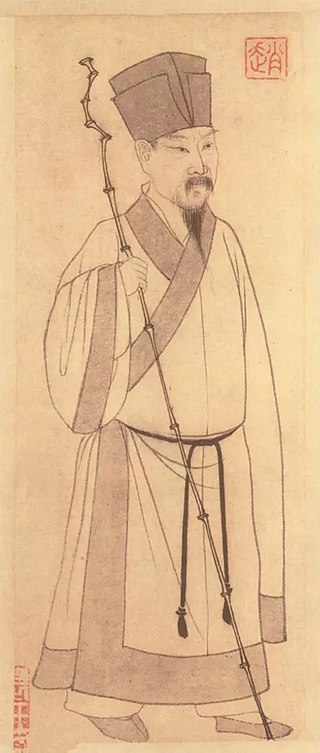
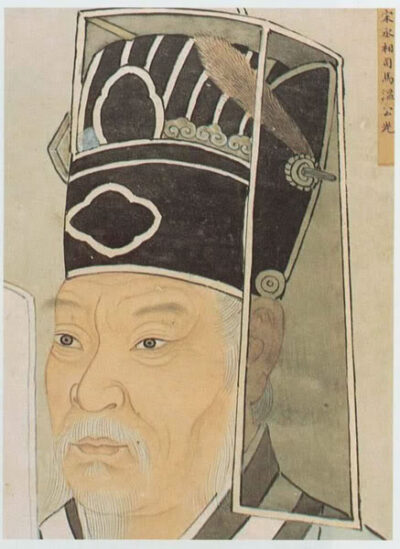
Warning: Undefined variable $comment_form_sns_tags in /home/ktsky/philosophy-kayak.com/public_html/wp-content/themes/shaper/comments.php on line 27
1件のコメントがあります